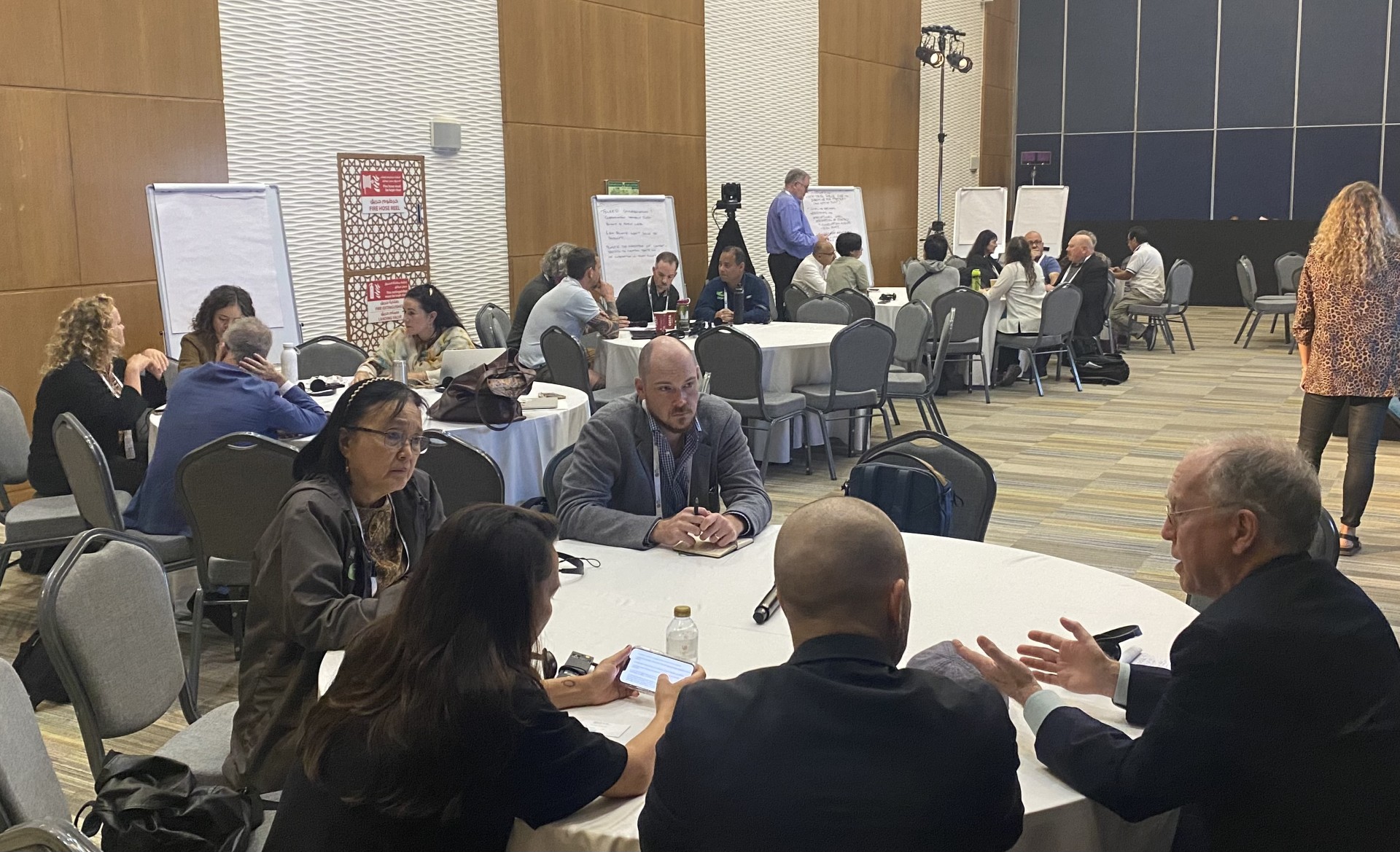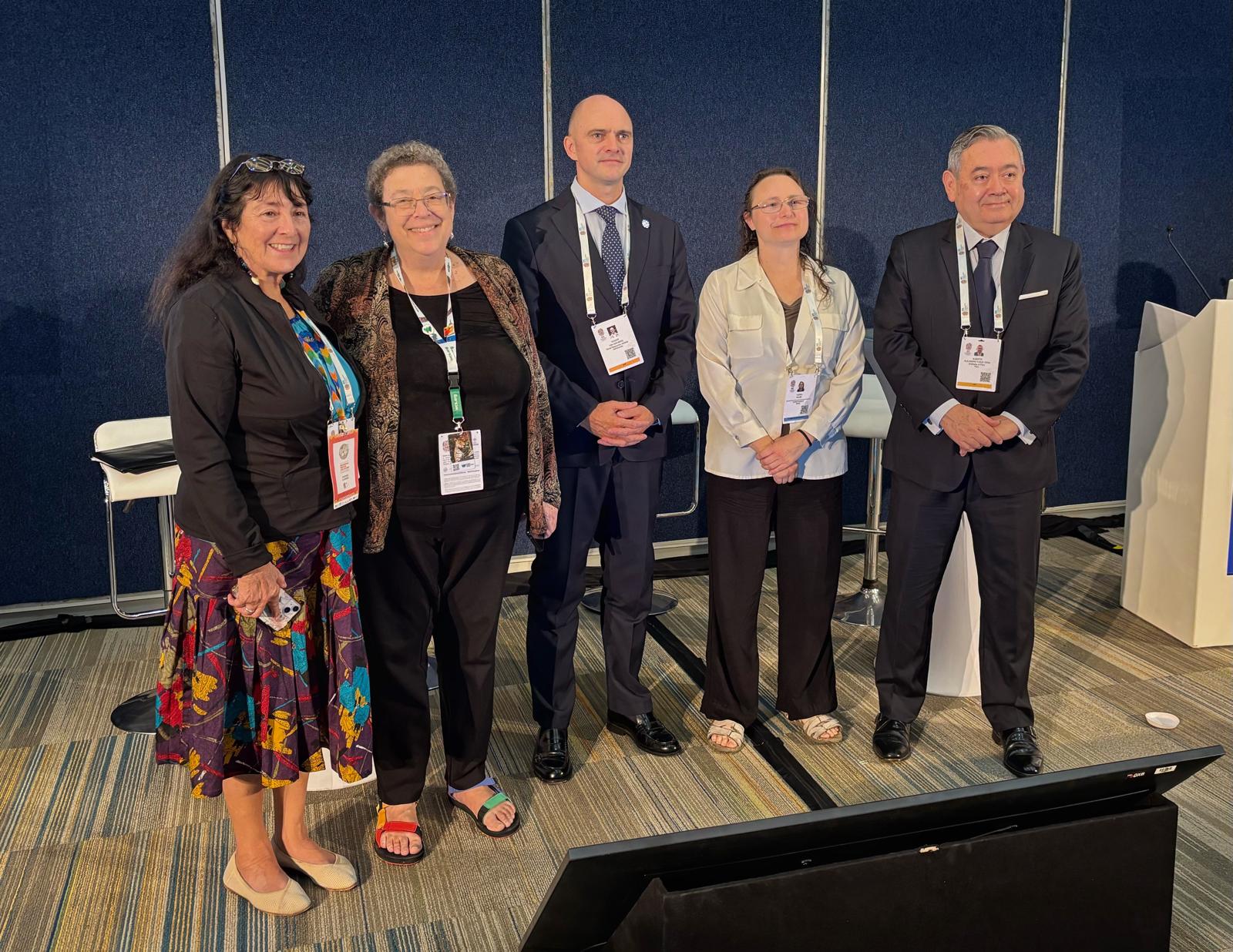Thematic session explores how IUCN can drive progress on crimes that affect the environment

Following the adoption of the Resolution on Crimes that Affect the Environment at the IUCN World Conservation Congress, the Nature Crime Alliance (hosted by World Resources Institute (WRI)) and its partners convened a thematic session exploring how action on environmental crime can be incorporated into the work of IUCN members.
‘Crimes Against the Environment and Nature Crimes – A Cross-Sectoral Challenge for Conservation and the Future of IUCN’s Mandate’, saw interventions from HE Alberto Alejandro Farje Orna, Peru’s Ambassador to the UAE; Dr Susan Lieberman, Vice President, International Policy, Wildlife Conservation Society (WCS); Andrea Carmen, Executive Director, International Indian Treaty Council (IITC) and Karen Hulme, Chair of the IUCN World Commission on Environmental Law (IUCN WCEL) Specialist Group on Peace, Security and Conflict and a Professor at the University of Essex.
Moderated by Rogier van den Berg, Global Director, Ross Center for Sustainable Cities, WRI, the discussion surfaced a range of pertinent issues across crimes that affect the environment.
A pressing global – and local – issue
Ambassador Farje Orna highlighted the importance of the IUCN Resolution on Crimes that Affect the Environment (048/52), noting that Peru was working with other states including Brazil and France to further this issue in other international fora.
Describing Peru as “an active member of the Nature Crime Alliance”, the Ambassador also shared his support of WRI’s call for environmental crime to be prominently highlighted at the UN Crime Congress in April 2026.

In a powerful intervention, Andrea Carmen, IITC, offered perspectives from Indigenous communities for whom this issue is very local. She highlighted the devastating effects of mining in the Sonoran Desert and the contamination that comes with such practices.
Carmen also noted that many acts of “environmental violence” are technically legal, presenting a major challenge for communities. Citing the words of a young member of the Apache community, Carmen said “Mother Nature is not dying. She is being murdered.”
Practical steps towards progress
Asked what IUCN members and other stakeholders can do to address crimes against the environment, Professor Karen Hulme, IUCN WCEL, noted the importance of international legal frameworks such as the UN Convention against Transnational Organised Crime (UNTOC).
Getting environmental crimes designated as serious organised crime under UNTOC is key, Hulme said, as this can unlock the resources and cross border support available to law enforcement under the Convention.
The thematic session also sought to capture insights from those in the room through a ‘World Café’ exercise. Participants gathered in groups to discuss two key questions: ‘What concrete ideas or actions would you suggest to strengthen collaboration among IUCN members on crimes that affect the environment?’, and, ‘How can IUCN members sustain momentum beyond the WCC and ensure these issues receive continued attention in other key international forums?’
Ideas surfaced included the need for a designated point of contact within IUCN to coordinate, track and drive progress on this issue across the membership, and the establishment for an IUCN task force on crimes that affect the environment. A directory of IUCN members who are working on the issue was also recommended.
Participants also highlighted the need for closer alignment with other international fora and frameworks that address environmental crime.
Multi-sector approach
Susan Lieberman, WCS, closed the session by emphasising the value of the resolution in raising the profile of environmental crime among IUCN, but added that the work starts now: we need to carry this forward into action. Collaboration between members and sectors will be key.
Held in partnership between the Government of Peru, IUCN WCEL, WRI, WCS, IITC, and the National Whistleblower Center, the session marked a key moment to reflect on the impact of resolution 048/52, and how it can drive positive change in the fight against environmental crime.
To learn more about the thematic session and the resolution, please contact Elodie Perrat, Senior Manager, Nature Crime Alliance, WRI: elodie.perrat@wri.org

